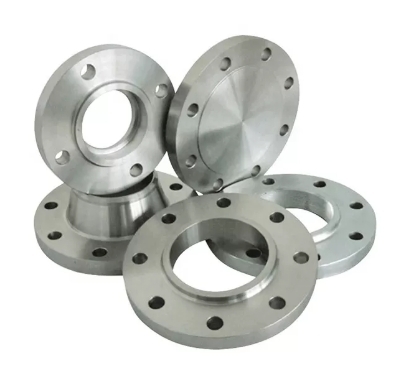Introduction:

Stainless steel flanges are crucial components that play a vital role in connecting pipes within various industrial and commercial applications. These innovative devices ensure secure and leak-proof connections, providing efficiency and durability to piping systems. In this blog, we will explore the versatility and importance of stainless steel flanges and their accompanying stainless flange bolts while shedding light on their various applications and benefits.
1. What is a Flange?
A flange is a connecting component that facilitates the joining of two pipes or sections of pipes. Typically, a flange consists of holes that align with corresponding holes on another flange. Bolts are passed through these holes and tightened, creating a close and secure connection. Flanges are typically sealed using a cushion or gasket to prevent leaks.
2. Types of Flanges:
a) Threaded Connecting Flanges:
Threaded connecting flanges feature internal threads that enable them to be screwed onto pipes with matching external threads. This type of flange is widely used in low-pressure applications, where ease of installation and maintenance is desired.
b) Welding Flanges:
Welding flanges, as the name suggests, are welded directly to the pipes or sections of pipes. They provide a strong, permanent connection, making them suitable for high-pressure and high-temperature applications.
3. The Versatility of Stainless Steel:
Stainless steel is a popular material choice for flanges due to its exceptional corrosion resistance properties, durability, and aesthetic appeal. The most common stainless steel grades used for flanges include 304, 304L, 316, 321, and 316L. These alloys offer superior resistance to rust, oxidation, and staining, making them ideal for applications in various industries, including chemical processing, oil and gas, food and beverage, and pharmaceuticals, among others.
4. Benefits of Stainless Steel Flanges:
a) Corrosion Resistance: Stainless steel flanges are highly resistant to corrosion caused by exposure to harsh chemicals, moisture, and high temperatures. This resistance ensures longevity and reliability in demanding environments.
b) Strength and Durability: Flanges made from stainless steel possess high strength and exceptional toughness, making them capable of withstanding high pressures, extreme temperatures, and mechanical stresses.
c) Hygienic Properties: Stainless steel flanges are easy to clean and maintain, making them suitable for applications where hygiene is of utmost importance, such as the food and beverage industry.
d) Versatile Applications: Stainless steel flanges find extensive use in a wide range of piping systems, including pipeline networks, oil refineries, petrochemical plants, water treatment facilities, and HVAC systems, among others.
5. The Role of Stainless Flange Bolts:
Stainless flange bolts play a crucial role in the proper installation and secure connection of flanges. These bolts, typically made from stainless steel for maximum durability, create a tight seal between the two flanges, preventing leaks and ensuring the structural integrity of the system. Stainless flange bolts are available in various sizes and strengths to cater to different application requirements.
Conclusion:
Stainless steel flanges and accompanying stainless flange bolts are indispensable components in modern piping systems. Their versatility, durability, and superior resistance to corrosion make them ideal for a wide range of applications. By providing a secure and leak-proof connection, these components ensure the efficient and safe operation of industrial and commercial processes across numerous industries.
